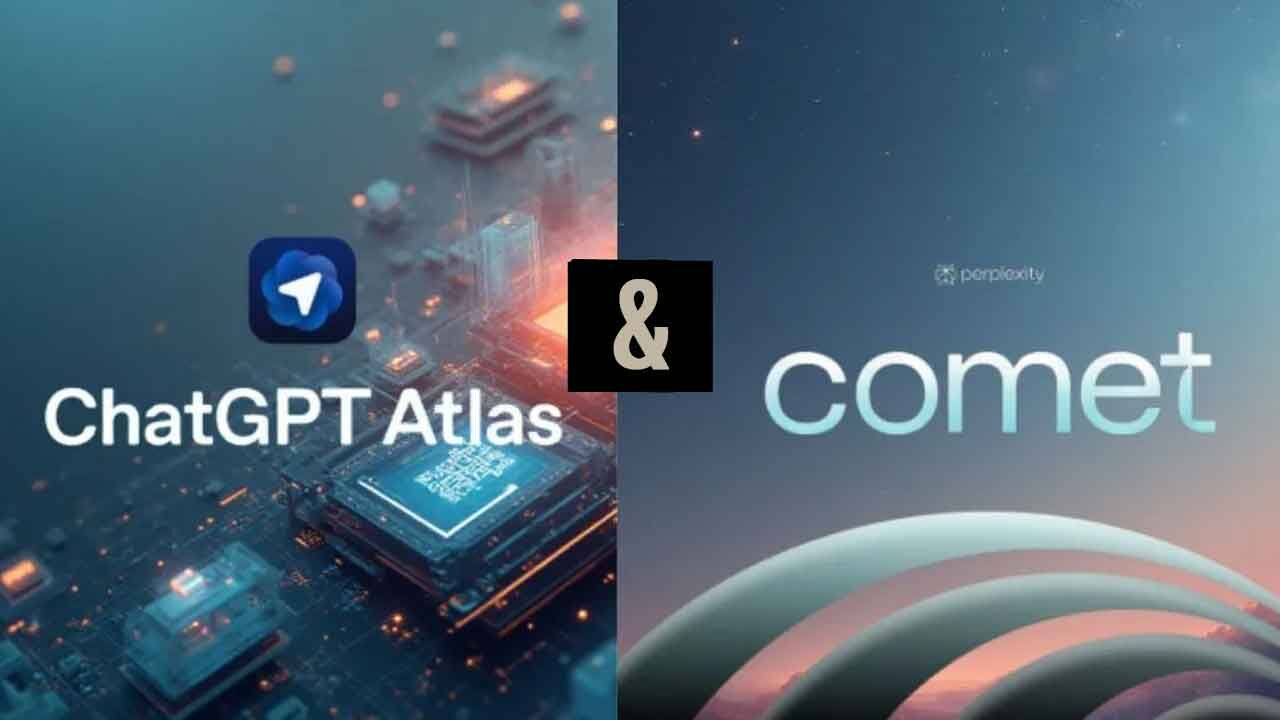AI Browser Wars: ChatGPT Atlas and Perplexity Comet Challenge Google Chrome’s Long Reign – The Hans India

Live
For years, Google Chrome has stood unchallenged as the world’s dominant web browser. Its blend of speed, stability, and ecosystem integration made it an internet staple — even a cultural phenomenon. Despite efforts from rivals like Microsoft Edge and Opera, none have truly broken Chrome’s monopoly. But the rise of generative AI has sparked a seismic shift, ushering in a new era of competition led by OpenAI’s ChatGPT Atlas and Perplexity’s Comet.
These two emerging browsers are rewriting the rules of browsing. Instead of competing on speed or design, AI-native browsers focus on intelligence — acting not just as portals to the web but as personal assistants that can think, act, and adapt to users’ needs. Built on Google’s own Chromium engine, both Atlas and Comet are using the tech giant’s foundation against it, aiming to redefine how users interact with information online.
OpenAI’s ChatGPT Atlas positions itself as the “Doer.” First launched on macOS, Atlas is designed as a personal agent that automates complex, multi-step tasks. Its headline feature, Agent Mode, available to paid users, can handle commands like, “Find a good noodles recipe, add all the ingredients to my grocery cart, and schedule a delivery for Tuesday.” Atlas executes the task end-to-end — opening tabs, clicking buttons, and filling forms autonomously.
A sidebar powered by ChatGPT accompanies users as they browse, offering real-time summaries, writing help, and contextual support across apps. However, its “Browser Memories” feature — which tracks user activity to personalise assistance — has raised serious privacy concerns. Critics warn that while Atlas’s automation is powerful, users must trust it with a significant amount of behavioural data. For those prioritising productivity, though, this trade-off may be worthwhile, as Atlas blends search, action, and communication into one seamless experience.
Meanwhile, Perplexity’s Comet takes a different approach — it’s the “Researcher.” Rather than automating tasks, Comet focuses on synthesising knowledge across multiple sources. Its standout tool, Workspace, lets users cluster tabs by project and ask questions like, “Based on all these tabs, what are the biggest risks for this project?” Comet then reads all open pages, generating a cited summary. With Persistent Intent Memory, it remembers the user’s goals across sessions, making it ideal for students, analysts, and researchers.
Perplexity CEO Aravind Srinivas has stressed that Comet’s purpose is to manage information overload — not to cut corners on learning. Its focus on organisation and comprehension over automation makes it the go-to browser for deep thinkers rather than doers.
As for Google, the tech giant isn’t staying idle. Chrome now comes equipped with its Gemini AI assistant, offering page summarisation, multi-tab recall, and integration across Gmail, Calendar, and Maps. Soon, Gemini will also gain agentic features that mirror Atlas’s automation.
The bottom line: the browser wars are back, but this time, they’re powered by AI. ChatGPT Atlas leads in task automation, Perplexity Comet dominates in research synthesis, and Google Chrome maintains its edge in ecosystem integration. For users, this new competition means one thing — the smartest browser is now the one that best fits your workflow and privacy comfort zone.
© 2025 Hyderabad Media House Limited/The Hans India. All rights reserved. Powered by hocalwire.com